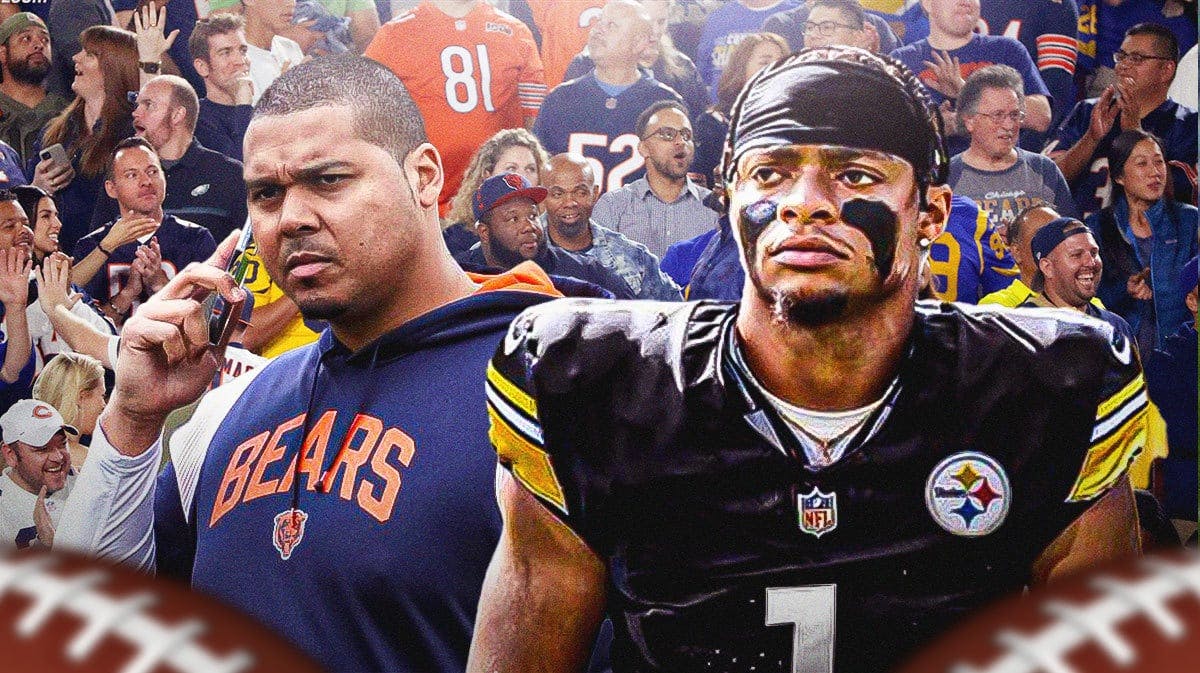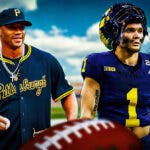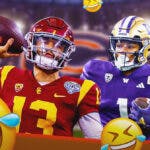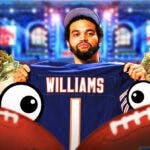The Chicago Bears made a Justin Fields trade with the Pittsburgh Steelers that brought back a conditional sixth-round pick that could become a fourth-rounder if Fields plays 51% of his new team’s snaps next season. That’s a far cry from the No. 11 overall pick the Bears used to draft the quarterback just three years ago. And that is just one reason this panic move from Bears general manager Ryan Poles was a bad one.
The Bears didn’t need to make a Justin Fields trade, especially now
The Bears didn’t make a mistake by making the Justin Fields trade with the Steelers. It was the right move overall. Their mistake was the timing of the trade which led to a less-than-stellar return for the first-round pick.
After shrewdly trading last season’s No. 1 overall selection to the Carolina Panthers, Poles could have again traded the pick for a massive haul to build the team for the future. Fields is a competent quarterback who still has some potential, and the right coach could get that out of him.
However, Poles decided to stick with Matt Eberflus as head coach and decided that the upside of taking USC QB Caleb Williams was just too high. He could be a generational prospect with a much higher ceiling than Fields. Plus, this resets the Bears’ pay their QB a huge deal clock by three years.
So, picking Williams and jettisoning Fields makes sense. What happened, though, is the Bears panicked once no team bit with a big offer during NFL free agency. Despite this, Chicago still had two more windows to make a Justin Fields trade.
They could have made a deal during or just after the 2024 NFL Draft. After the Bears take Williams, there are five QB prospects who will come off the board in the next 40-60 picks. With more than five NFL teams that want a young developmental signal-caller, the Bears could have found a taker then.
There is also the OTA and training camp window. This offered the Bears the highest risk, but the highest reward as well.
If a starting NFL QB suffered an injury at this point, Fields would have been the absolute best option to replace said quarterback and Ryan Poles could have got his best return of all.
Of course, there is a chance that no big-time QB gets injured and the Bears would have to keep Fields this season. As long as he didn’t become a complete locker-room nightmare, keeping Fields as a competent backup at a $3.2 million cap hit is actually a great deal for the franchise.
If Poles had rolled the dice, as he should have, the Bears could have gotten a much better Justin Fields trade. However, he bowed to (at least) external and possibly internal pressure and pulled the trigger too early. This got him fair market value, but with Fields, he could have reset the market for “failed” first-round quarterbacks.
First-round quarterbacks aren’t worth what they used to be
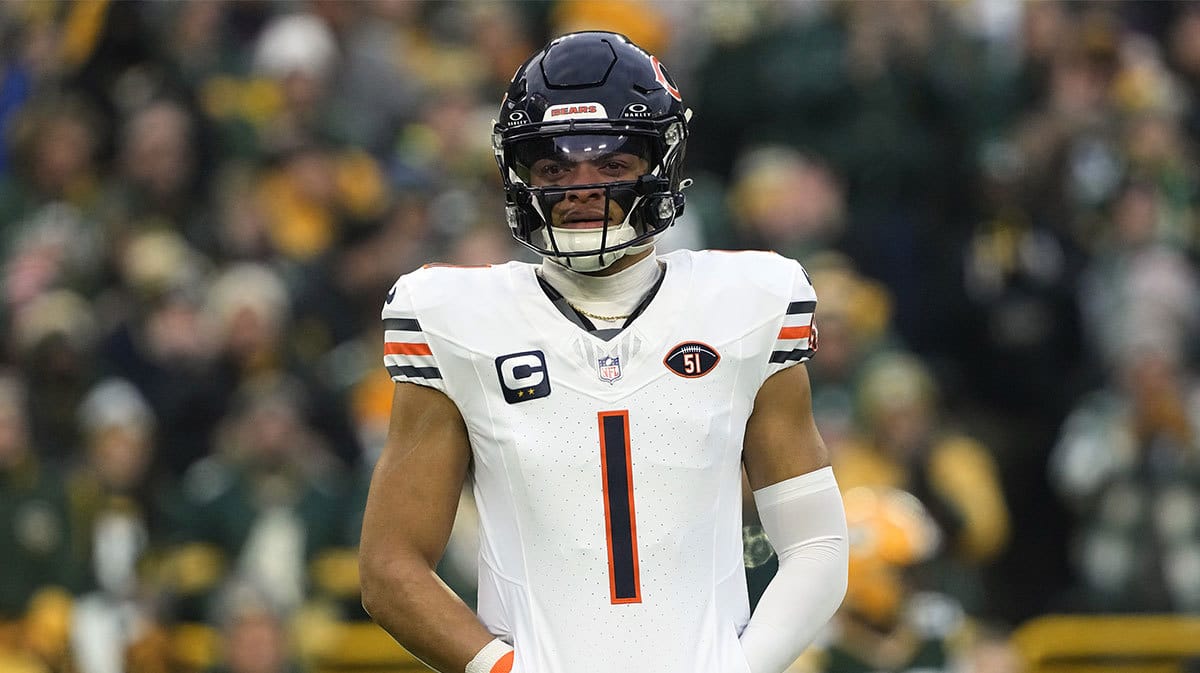
NFL teams like the New England Patriots, San Francisco 49ers, and Steelers are proving that first-round NFL quarterbacks are a lot like new cars in that they lose a big chunk of their value as soon as you drive them off the lot/put them in an NFL game.
In just the last week, the Steelers traded the 2022 No. 20 overall pick Kenny Pickett to the Philadelphia Eagles for two seventh-round picks and a pick swap, and the Patriots got a sixth-round pick for the 2021 No. 15 selection, Mac Jones. Last offseason, the No. 3 pick in that draft, Trey Lance went from the 49ers to the Dallas Cowboys for a fourth-rounder.
While that last trade got the most back in terms of draft capital, it may be the worst of all the deals as the 49ers sent pick 12, two additional first-round picks, and a third-rounder to the Miami Dolphins in order to move up 10 spots to draft Lance.
Ryan Poles and the Bears did decently well in the Justin Fields trade with the Steelers based on the examples above. And, Poles reportedly had even better offers but wanted to do right by his now-former QB.
“The Bears had an additional offer with stronger draft capital from a team with an established starter, per a source,” ESPN Bears insider Courtney Cronin reported Sunday. “But chose to send Fields to Pittsburgh with the hope of putting the 25-year-old in a position to continue his development — first as a backup to Wilson and eventually as a starter.”
So, in a league that is becoming increasingly player-centric (or at least QB player-centric), maybe Poles did buy some goodwill by sending Fields to the best spot right now for him. That said, if Poles waited until one of the next two windows of opportunity to trade the signal-caller, maybe Fields would have come in to his new team as a starter and not a backup/1B option.
